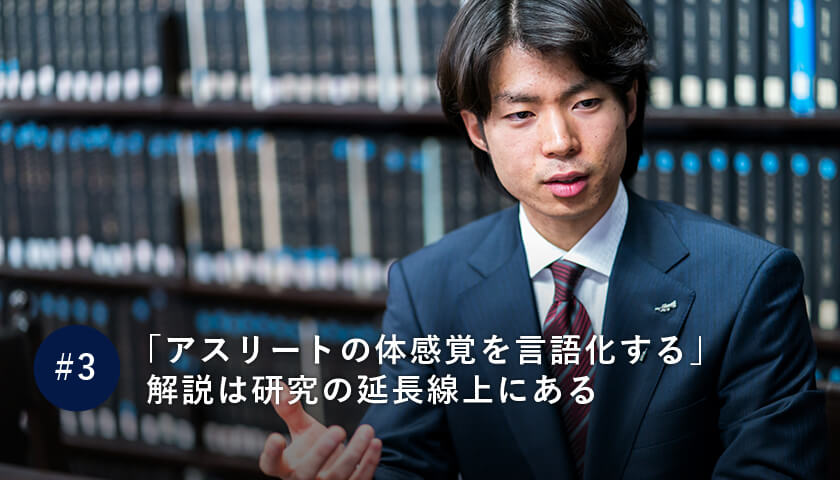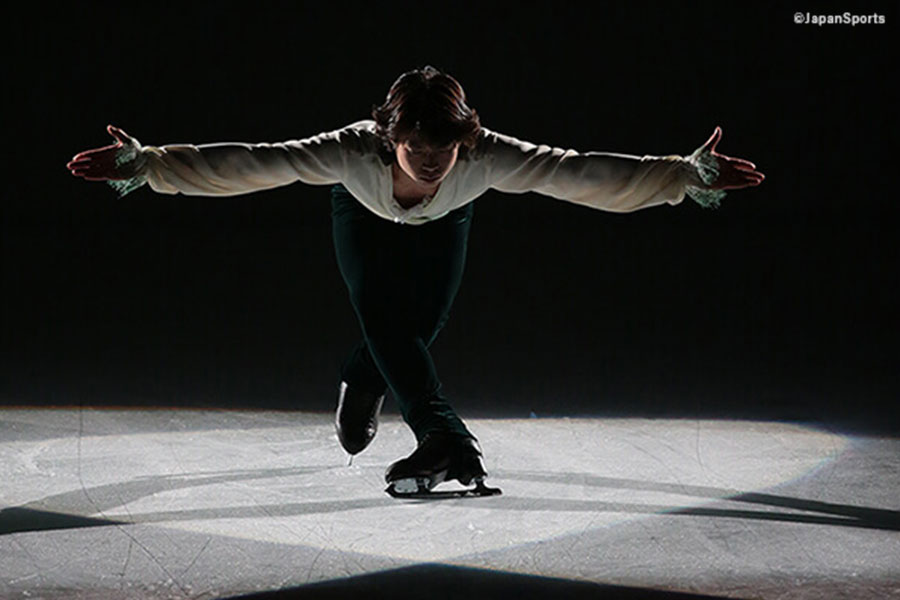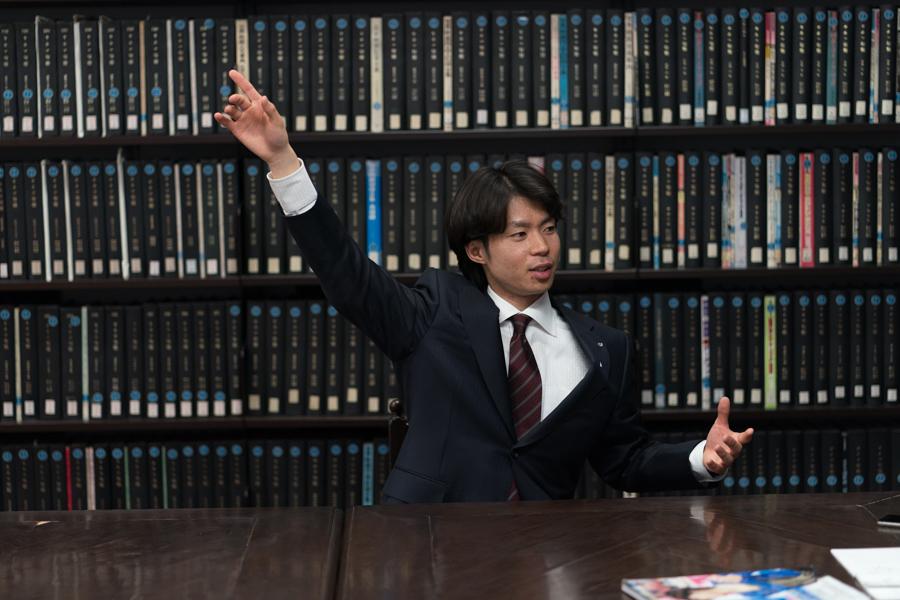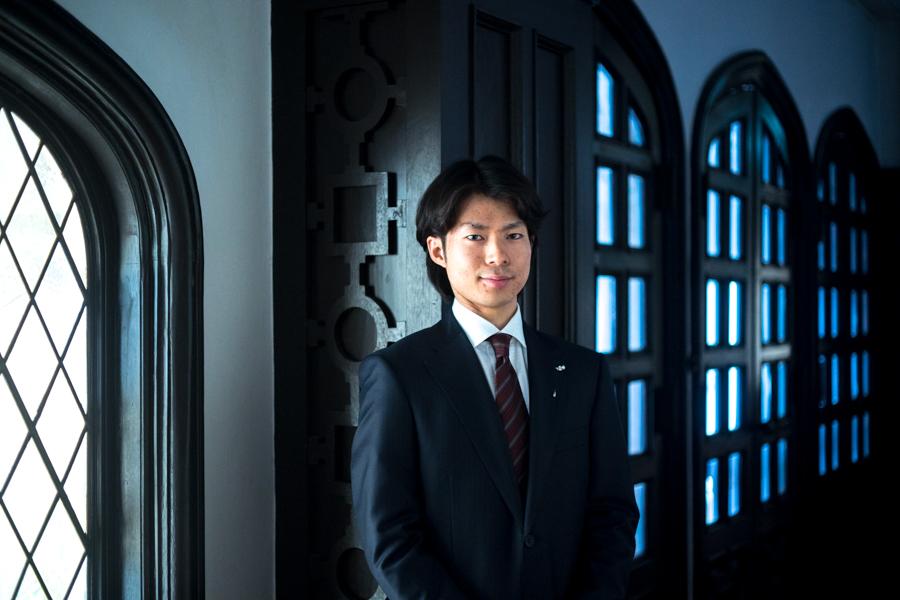
#3 “Verbalizing the body sensations of athletes” Commentary supplements research
ーIn addition to being a researcher you are also a professional skater. What are some of the differences between being an athlete and a professional?
Machida: I think professional skaters have more responsibility than athletes. In the professional world customers pay for a performance. Just as the word “professional” implies, a professional skater is paid for their services; therefore, they have a responsibility to provide a satisfying and entertaining performance.
As a choreographer and performer, I’ve both choreographed and performed in a total of seven works. Fortunately, I’ve been able to create rewarding works with the help of a great production team. We’ve continuously presented novel and innovative works to the figure skating world.
The world is obviously full of entertainment forms which are not ice shows. These other forms of entertainment are our rivals. In this regard my time as a professional is harsher than when I was an athlete.

©JapanSports(2015 Prince Ice World Yokohama Performance)
“The Inheritor” 2015 Season Program, Machida’s first work as a professional skater since retiring from the competitive world. Accompanied by Shubert’s Impromptus Op. 90 No. 3, the work presents a unique interpretation of humans as inheritors and bequeathers. In the course of six minutes, a relatively long period of time for the format, Machida showcases his technique with eight jumps of six varieties.
ーYou’ve gone from an environment in which other athletes are rivals to one in which other entertainment forms are rivals. How about your work as a commentator? You communicated the allures of figure skating as a commentator at the 2018 Winter Olympics.
Machida: As a commentator I try to communicate athletes’ body sensations to listeners. Athletes perform based on their body sensations, not logic. An important role of a commentator is to verbalize athletes’ sensations.
The allure of artistic sports is not who wins or loses. The purpose of commentating is to communicate to regular people in easy-to-understand language the allures of the programs, the strengths of athletes, and the irreplaceable individuality of these athletes.
ーIt must be difficult to verbalize the inexpressible body sensations experienced by athletes. How did you acquire the ability to verbalize these sensations?
Machida: I’ve consciously tried to verbalize these sensations since my time as a competitor. This is because one can drastically improve their competitive abilities by verbalizing their sensations. By verbalizing body sensations, which are experienced unconsciously, one can learn to recognize certain sensations to help them during slump periods.

Also, the ability to verbalize makes your expressions more convincing. For example, instead of vaguely thinking of the pose in which one suddenly stretches out a hand as the “sad pose,” one can think of it as “the figure of a dignified individual who, even when drowning in sadness, pushes forward.” Expressions dramatically change when one verbalizes the subtle narratives and backgrounds underlying their emotions. This is why there are various merits to verbalizing physical movements. I consider my job as a commentator, in which I verbalize sports, a supplement to my research.
ーLastly, do have any advice for Waseda University students?
Machida: At university students come into contact with various academic fields and learn about themselves and grow. Their options after completing university expand. Of course, it’s also important to hang out with friends and lead a fulfilling student life. Waseda University is the perfect environment for this.
For former or current athletes, I want them to know the act of learning itself will improve their competitive abilities, regardless of the sport. Training doesn’t only consist of moving the body and training muscles. By learning about cutting-edge scholarship at university, one can learn to analyze their performances objectively, verbalize them, and view them in relation to others. This will naturally improve their competitive abilities. This is something I truly believe now that I’ve retired from life as a competitor and moved on to the next stage in my life.








